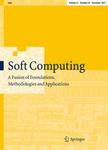版权所有:内蒙古大学图书馆 技术提供:维普资讯• 智图
内蒙古自治区呼和浩特市赛罕区大学西街235号 邮编: 010021

作者机构:Univ Exeter Comp Sci Exeter EX4 4QF Devon England
出 版 物:《SOFT COMPUTING》 (Soft Comput.)
年 卷 期:2015年第19卷第6期
页 面:1445-1460页
核心收录:
学科分类:08[工学] 0812[工学-计算机科学与技术(可授工学、理学学位)]
主 题:Evolutionary algorithms Multi-modal problems Local search Dynamic populations Self-adaptation
摘 要:Multi-modality can cause serious problems for many optimisers, often resulting convergence to sub-optimal modes. Even when this is not the case, it is often useful to locate and memorise a range of modes in the design space. This is because optimal decision parameter combinations may not actually be feasible when moving from a mathematical model emulating the real problem, to engineering an actual solution, making a range of disparate modal solutions of practical use. This paper builds upon our work on the use of a collection of localised search algorithms for niche/mode discovery which we presented at UKCI 2013 when using a collection of surrogate models to guide mode search. Here we present the results of using a collection of exploitative local evolutionary algorithms (EAs) within the same general framework. The algorithm dynamically adjusts its population size according to the number of regions it encounters that it believes contain a mode and uses localised EAs to guide the mode exploitation. We find that using a collection of localised EAs, which have limited communication with each other, produces competitive results with the current state-of-the-art multi-modal optimisation approaches on the CEC 2013 benchmark functions.